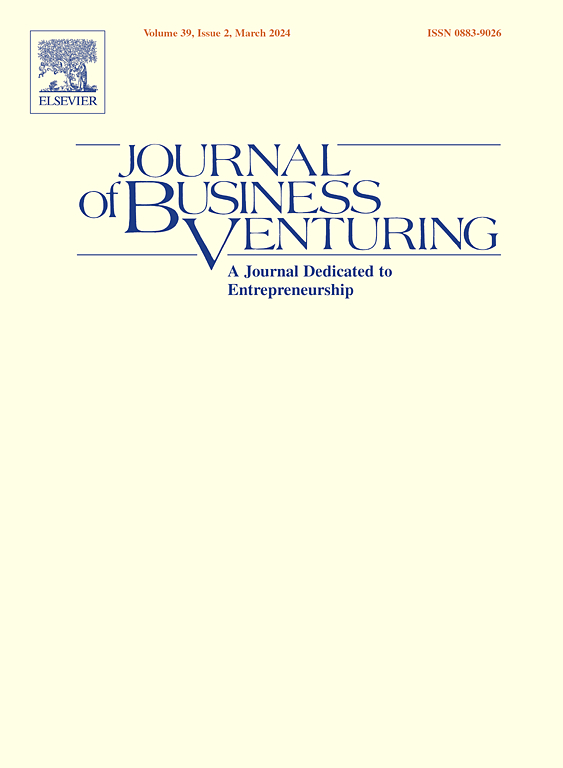不是你想看到的?对肥胖的刻板印象,对期望的违背,以及天使投资决策
IF 8.9
1区 管理学
Q1 BUSINESS
引用次数: 0
摘要
本文研究了肥胖刻板印象对天使投资决策的影响。根据刻板印象文献和期望违背理论,我们提出天使投资者倾向于对肥胖创始人的评价更差,因为他们认为他们热情高,但能力低(能力对天使投资者的评价更重要)。然而,我们也认为,肥胖的创始人通过高能力的表现打破了低能力的刻板印象,可以在不影响积极刻板印象的情况下抵消消极的肥胖刻板印象,从而获得更高的整体评价。两项实地研究的结果表明,天使投资人惩罚了肥胖的创始人,但对那些提出高科技企业的人来说,这种影响有所改善。一项后续实验利用人工智能生成的、逼真的创始人身体类型操作,确定了感知能力和温暖度是解释这种效应的机制。总的来说,这些发现有助于创业金融的外观,刻板印象及其违反,以及创业研究方法的文献流。本文章由计算机程序翻译,如有差异,请以英文原文为准。
Not what you expected to see? Obesity stereotypes, expectancy violations, and angel investment decisions
This article investigates the impact of obesity stereotypes on angel investment decisions. Drawing from the stereotype literature and expectancy violation theory, we propose that angel investors tend to evaluate founders with obesity worse because they perceive them as high in warmth but low in competence (and competence matters more for angel investors' evaluations). However, we also suggest that founders with obesity who violate low-competence stereotypes through high-competence displays can offset negative obesity stereotypes without affecting positive ones, leading to overall higher evaluations. The results from two field studies show that angel investors penalize founders with obesity but that the effect is ameliorated for those presenting high-tech ventures. A follow-up experiment using AI-generated, photorealistic manipulations of founders' body types identifies perceived competence and warmth as mechanisms that explain the effects. Collectively, these findings contribute to the literature streams on appearance in entrepreneurial finance, stereotypes and their violations, and entrepreneurial research methods.
求助全文
通过发布文献求助,成功后即可免费获取论文全文。
去求助
来源期刊

Journal of Business Venturing
BUSINESS-
CiteScore
16.70
自引率
6.90%
发文量
59
审稿时长
77 days
期刊介绍:
The Journal of Business Venturing: Entrepreneurship, Entrepreneurial Finance, Innovation and Regional Development serves as a scholarly platform for the exchange of valuable insights, theories, narratives, and interpretations related to entrepreneurship and its implications.
With a focus on enriching the understanding of entrepreneurship in its various manifestations, the journal seeks to publish papers that (1) draw from the experiences of entrepreneurs, innovators, and their ecosystem; and (2) tackle issues relevant to scholars, educators, facilitators, and practitioners involved in entrepreneurship.
Embracing diversity in approach, methodology, and disciplinary perspective, the journal encourages contributions that contribute to the advancement of knowledge in entrepreneurship and its associated domains.
 求助内容:
求助内容: 应助结果提醒方式:
应助结果提醒方式:


